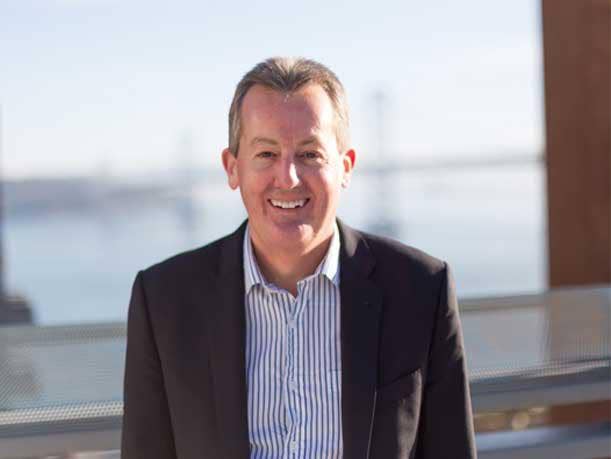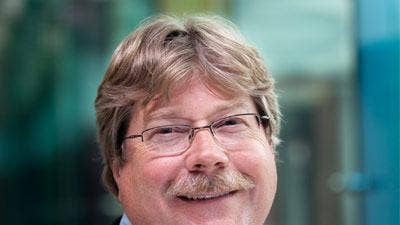PTC Hires Oracle Vet As New Channel Chief To Push IoT, Subscriptions

John Gray
PTC has hired a former Oracle executive as its new channel chief to push for more subscription revenue from partners as the industrial software vendor continues to double down on the Internet of Things.
The Needham, Mass.-based company recently appointed John Gray as senior vice president of global solution provider sales, taking the channel helm from Kerry Grimes, who now has the expanded role of divisional vice president of PTC Partner Network and emerging geographies.
Gray, who started at PTC on Oct. 22, was most recently senior vice president of alliances at Datadog, a Boston-based cloud monitoring provider. He held previous executive roles at Oracle, New Relic and BEA Systems. Gray was also recently a consultant for IPED, a division of The Channel Company, the parent company of CRN.
[Related: GE Digital's Predix Now Supports Low-Latency, Offline IoT Deployments]
In an exclusive interview with CRN, Gray and Grimes discussed why Gray joined PTC and how his appointment comes during an inflection point for the 33-year-old company, which is making big bets on industrial IoT and augmented reality, transitioning to a subscription-based revenue model, seeking to expand internationally and planning a big headquarters move to Boston in 2019.
"If you look at PTC, they have been very successful in building a strong platform and a strong story around IoT and AR [augmented reality] as the tip of the spear," Gray told CRN.
Subscription Is In Gray's 'DNA'
Grimes said that after helping PTC become a more partner-friendly organization over his five-year tenure as channel chief, he is handing over responsibilities to Gray, whose channel experience at cloud- and SaaS-based businesses fits well with PTC's goal of becoming a subscription-based company.
"I understand certainly that to help our partners through that transformation as well as to potentially redesign our compensation programs that will be eventually more around recurring revenue than just new bookings, I wanted to get someone that's actually got in their DNA," Grimes said.

Kerry Grimes
It also helped that Grimes and Gray have known each other since the 1990s when they worked at IBM together, which Gray said played an important factor in his decision to take the job.
Over Grimes’ five years as PTC's channel chief, he said annual revenue from the channel has grown from roughly 22 percent to around one-third in fiscal year 2018, which ended in September. The company's total revenue in 2018 was $1.2 billion, $482 million of which came from software subscription sales.
Gray said his first priorities as PTC's new channel chief are to "listen and learn" and that he has already had "countless meetings" with partners to assess their status with PTC.
"I can't be effective if I don't understand the partners, the relationships and how the business is built today," Gray said. "My goal is to take the business that Kerry has built and build it to the vision that Kerry has laid out, because I think it's a solid vision and it's working.”
Channel Program Changes And Priorities
Coming off PTC's 2019 sales kickoff last week, Gray and Grimes said the company is making changes to its channel program that aim to incentivize partners to move from selling software with perpetual licenses to software subscriptions. That includes a greater emphasis on recurring revenue in PTC's compensation program, a new channel development fund that will allow partners to invest in headcount, and a new program that will enable partners to build their own customer success teams.
As partners move to a subscription-based model, Gray said, the importance of customer success grows “phenomenally." Customer support has played a major role in PTC's move to a recurring revenue model, with support accounting for a little more than half of the company's $978 million in recurring revenue for 2018, according to PTC's recent fourth-quarter earnings release.
Grimes said PTC is planning to provide partners the tools, processes and systems the company uses for its own customer success team so that they can build their own customer success organizations. He called it a new revenue opportunity for partners where "they don't hand any margin back to us at all." To build out the new program, PTC is hiring partner success employees to implement it.
"We would actually provide our tools processes and systems for them to leverage to create their own success plans for customers," Grimes said.
Beyond helping partners transition to a subscription-based business, another top priority for PTC's channel organization is to encourage more collaboration among partners.
"We're formulating a ‘partner with partners’ strategy because no one can do it all themselves," Grimes said. "It's going to take someone that can get the connectivity, someone else that may be figuring out sensors, someone else that may be aggregating the data together. And so how do our partners work together to create a gigantic solution to solve the customer’s problem?"
Grimes said PTC's recently announced $18 million restructuring plan will have a positive impact on the channel because it will allow the company to invest more in channel resources for IoT and AR.
Partners 'Humbled,' 'Invigorated' By Strategy
Wayne Brisson, founder and CEO of Aquitas Solutions, a Roswell, Ga.-based PTC partner and one of CRN's 2018 IoT Innovators, said he finds Gray's appointment and PTC's other changes to its channel organization promising, especially for partners like him who are focused on IoT.
"We're invigorated by the fact that they're paying attention to the channel," he said.
One of Brisson's takeaways from PTC's sales kickoff last week was the importance of PTC's new partnership with Rockwell Automation that will give partners new selling opportunities. He said his company is exploring becoming a Rockwell partner because of the growth opportunities.
"Rockwell is a pre-eminent industrial services company, and it brings a legitimacy when you go in with Rockwell to the shop floor," Brisson said. "It changes the dynamics from just being a software company to being an industrial solution company, and I think that only helps."
Ray Miciek, executive vice president of sales at Aquitas, said even though computer-aided design and product life-cycle management still represent the bulk of PTC's business, it was clearly positioning IoT as the company's new growth engine that connects with all of PTC's other businesses.
"They're going to use IoT to complete the whole story from design to deployment to maintenance and operations, which is exciting," he said.
If there's one thing Miciek's looking for from PTC, it's creating greater public awareness about the company. He pointed to IBM's large advertising campaigns as an example.
"It will be interesting to see if they kind of push out to more of a commercial-type marketing where people start to see it and recognize it," Miciek said.
Barry Lynch, vice president of sales and marketing at Factora, a Trois-Rivières, Quebec-based PTC partner and another of CRN’s IoT Innovators for 2018, said he's humbled by how much attention PTC is giving to partners, which was underscored last week when partners were invited to PTC's sales kickoff.
"The fact that I am at a sales kickoff with a company is quite unique," he said. "As a partner you're usually on the outside."
Lynch said Factora is already taking PTC's "partnering with partners" strategy to heart by working with companies that specialize in product life-cycle management and asset performance management.
"We have skills in manufacturing that are complementary to their skills in PLM or APM," he said. "So as [PTC's IoT platform] ThingWorx is deployed and expanded through the company and people take full advantage of it, we have our own swim lanes and together we can help each other."
Overall, Lynch said, PTC is making the right investments to become a larger IoT player.
"They shared with us their growth plans for the next five years—very aggressive growth in IoT—and they're putting the structure and the effort in to make to be successful," Lynch said.